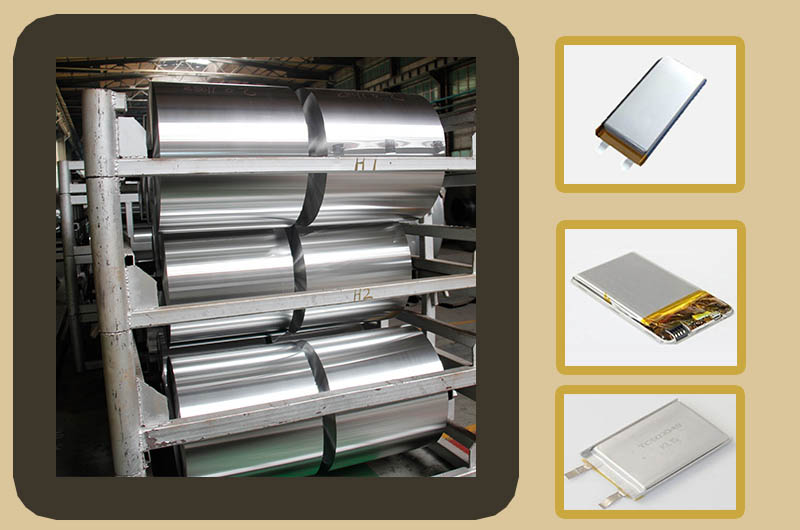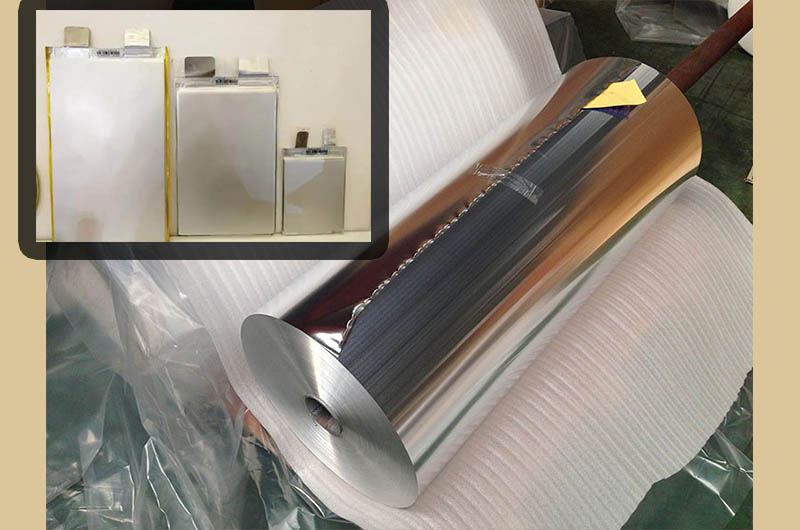- Where to Use Aluminum Foil for Battery Cases
- Why Use Aluminum Foil for Battery Cases?
- Battery Shell Aluminum Foil Alloy and Specifications
- Advantages of Aluminum Foil Battery
- Quality requirements of Battery Grade Aluminum Foil
- Application of Battery Shell Aluminum Foil
- Common Problems and Solutions
- Frequently Asked Questions about Battery Case Aluminum Foil
- People also Searched for Battery Shell Aluminum Foil
- Conclusion
Battery technology is evolving rapidly, and the materials used in battery construction play a crucial role in enhancing performance, efficiency, and safety. One such vital component is the battery shell aluminum foil, a thin yet indispensable layer that contributes significantly to the overall functionality of batteries.

Where to Use Aluminum Foil for Battery Cases
Aluminum foil is widely used in the construction of battery cases for various types of batteries, including lithium-ion batteries, nickel-metal hydride batteries, and others. The foil is commonly employed as a protective layer within the battery casing, acting as a barrier to prevent the penetration of external elements like moisture and oxygen.
Why Use Aluminum Foil for Battery Cases?
Corrosion Resistance: Aluminum foil boasts excellent corrosion resistance properties, making it an ideal choice for battery cases. This characteristic ensures that the foil does not degrade over time, maintaining the structural integrity of the battery.
Conductivity: The high electrical conductivity of aluminum facilitates efficient current flow within the battery, promoting optimal performance.
Lightweight and Ductile: Aluminum is a lightweight and ductile material, allowing for easy forming and shaping to suit various battery designs. This flexibility is crucial for accommodating the diverse shapes and sizes of batteries.
Thermal Management: Aluminum foil aids in thermal management within the battery, dissipating heat generated during operation and preventing overheating, which is vital for safety and longevity.
Battery Shell Aluminum Foil Alloy and Specifications
The alloy used for battery shell aluminum foil typically belongs to the 3xxx or 8xxx series of aluminum alloys. Alloys such as 3003 and 8011 are commonly employed due to their excellent combination of strength, ductility, and corrosion resistance.
Specifications for battery shell aluminum foil may vary based on the specific requirements of the battery manufacturer. Common specifications include thickness, width, and surface quality. For instance, a common specification could be 10-50 microns in thickness and a width ranging from 100 to 600 millimeters.
| Use | Battery soft package | Lithium battery |
|---|---|---|
| Typical alloy | 8021, 8079 | 1050, 1060, 1070, 1100, 1235 |
| Temper | O, H14, H18 | |
| Thickness (mm) | 0.015-0.2 | |
| Width (mm) | 100-1600 | |
| Length (mm) | Coil | |
| Treatment | mill finish | |
| Standard | ISO SGS ASTM ENAW | |
| Price terms | LC/TT/DA/DP | |
| Packaging | Standard seaworthy export packaging. Wooden pallets with plastics protection for the coil and sheet. | |

Advantages of Aluminum Foil Battery
- Longer battery life – 5 times more than lead-acid batteries.
- Low self-discharge.
- Steady discharge and charge performance.
- Outstanding thermal stability.
- Wide temperature performance.
- Short circuit protection.
- Overcharge and over-discharge protection.
- Over-current protection.
- Easy carrying and installation – can be carried and installed in any direction.
- Fast charging – about 4~6 hours to be fully charged.
- Lighter weight – 1/2~1/4 in weight compared to LA batteries.
- Require no change to a lead-acid battery charging system.
- Better safety – mild warm, no explosion and firing, free of leakage.
- Environmentally friendly – no poisonous lead, no acid, no heavy/rare metals.
- No gasses during charge, free of leakage and pollution.
Quality requirements of Battery Grade Aluminum Foil
1. the surface of the aluminum foil is uniform, clean and flat, without obvious roller marks, pits, pinholes and corrosion marks.
2. there are no rolling defects such as creases, mottling and bright lines on the surface of the aluminum foil.
3. there is no color difference on the surface of aluminum foil.
4. surface is free of oil, no serious oil smell, and no oil spots visible to the naked eye.
5. surface tension, the dyne pen test is not less than 32 dyne.
Application of Battery Shell Aluminum Foil
Lithium-ion Batteries: For lithium-ion batteries, the aluminum foil is used as a cathode current collector. Alloy 3003 is often chosen for its balance of strength and conductivity.
Nickel-Metal Hydride Batteries: In nickel-metal hydride batteries, aluminum foil serves as a component of the anode current collector. Alloy 8011 is commonly selected for its corrosion resistance.
Common Problems and Solutions
Corrosion: Corrosion of aluminum foil can occur over time. To mitigate this, manufacturers may apply protective coatings or use higher corrosion-resistant alloys.
Creases and Wrinkles: During the manufacturing process, creases and wrinkles may appear on the foil. Proper handling and quality control measures are essential to minimize these issues.
Inconsistent Thickness: Inconsistent foil thickness can impact battery performance. Stringent quality control and precise manufacturing processes help ensure uniform thickness.
Frequently Asked Questions about Battery Case Aluminum Foil
Can I use any aluminum foil for a battery case?
No, it is essential to use aluminum foil with the appropriate alloy and specifications to meet the requirements of the specific battery type.
How does aluminum foil contribute to battery safety?
Aluminum foil enhances safety by providing a corrosion-resistant barrier, aiding in thermal management, and ensuring consistent electrical conductivity.
What should I do if I notice corrosion on the aluminum foil?
If corrosion is observed, it is crucial to investigate the root cause and address it promptly. This may involve using a more corrosion-resistant alloy or implementing protective coatings.
People also Searched for Battery Shell Aluminum Foil
- Will aluminum foil make a battery work?
- What happens if you wrap a battery in aluminum foil?
- Is aluminum foil conductive for batteries?
- What is the foil in batteries called?
Conclusion
Battery shell aluminum foil is a critical component in the construction of various types of batteries, contributing to their performance, safety, and longevity. The choice of alloy and adherence to specifications are paramount to achieving optimal results.
As battery technology continues to advance, the role of aluminum foil in enhancing battery performance will likely become even more pronounced.
